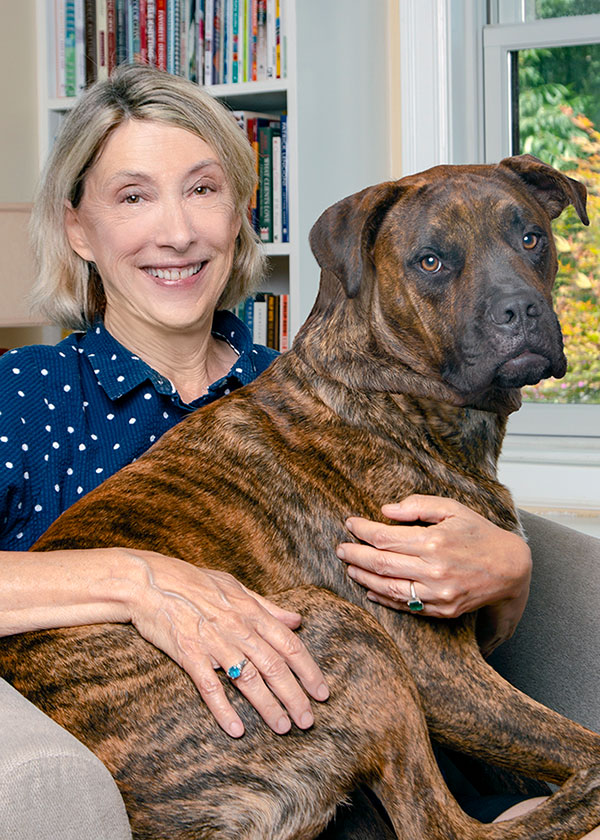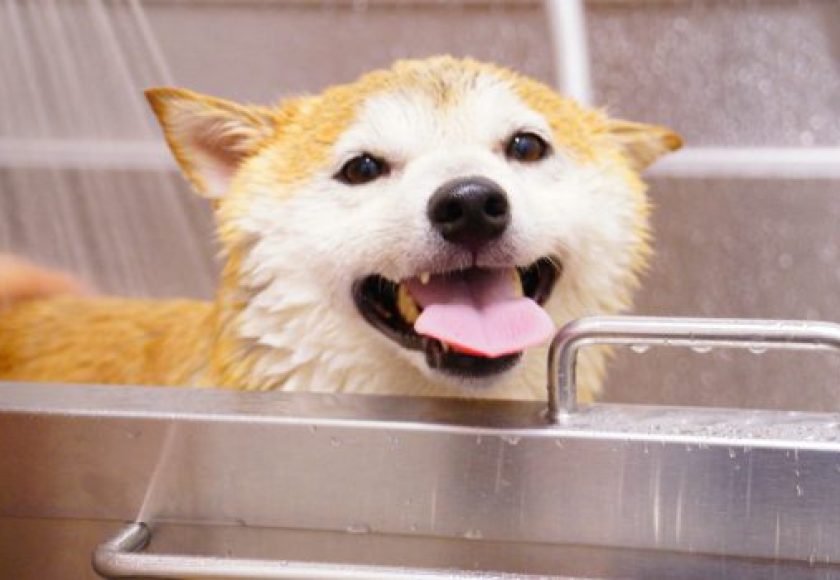Service dogs are trained to assist individuals with a variety of disabilities, and the puppy phase is a critical period in their development. They provide physical aid and emotional support that can vastly improve the recipients’ quality of life.
Putnam Service Dogs relies on our wonderful volunteer service dog puppy raisers, and our skilled caretakers at our Training Center for their incredible kindness and devotion. The puppy socialization period is an important part of their training, and together with our volunteers and caretakers, we raise amazing animals with the training and skills to change lives.
The Importance of Service Dog Socialization During the Puppy Phase
Service dog socialization is important during the puppy phase for a few different reasons. The socialization these dogs receive early on will have a significant impact on their personalities as adults. Proper socialization ensures that when the puppies become adults, they react to situations in their environments calmly and confidently.
Ample and comprehensive socialization is the bedrock upon which all other training – especially service dog training – rests. Service dogs are with their recipients around the clock, including in public places like restaurants, shopping centers, doctors’ offices, and public transportation. Socializing a puppy involves exposing them to a wide range of people, places, other animals, and situations.
Service Dog Puppy Raising Process
Putnam Service Dogs makes the service dog puppy raising process as simple as possible, allowing our volunteers to focus their efforts where they matter most. Our volunteers commit to a time period between six and 18 months, and we provide almost everything the puppy will need – food, accessories like leashes and harnesses, veterinary care, grooming care, vests and toys — as well as prepare volunteers for puppy raising. We even make sure each puppy has his or her very own bed to sleep on after a productive day of training and play.
Above all else, service dog puppy raisers focus on five facets of care, which include several socialization efforts:
- Showing the puppy the love they need to thrive as a service dog later in life;
- Exercising and playing with the puppy every day;
- Practicing obedience training exercises in several short snippets throughout the day;
- Taking the puppy out in public at least once each week; and
- Keeping the puppy happy, healthy, and safe.
When to Socialize a Puppy Training to be a Service Dog
Experts agree that extensive socialization is an essential part of raising a happy, healthy, confident, and well-behaved dog, whether you are raising a pet or a service dog. When dogs miss out on socialization during the puppy phase, they may develop behavioral issues such as fear-based reactivity or food aggression that could prevent them from providing service to individuals with disabilities.
According to VCA Animal Hospitals, social learning happens throughout a dog’s life, but the prime puppy socialization window occurs between three and 14 weeks of age. This is called the sensitive period, and it often begins while the puppy is still with its mother and littermates. It is the time when they are more receptive to being acclimated to a wide range of stimuli and situations. Our puppy raiser volunteers and caretakers at our Training Center continue this socialization until the pup is matched with a recipient, or released from our training program.
Best Ways to Socialize a Puppy in Training
During the puppy socialization period, there are several tried-and-true methods for ensuring the dog gets plenty of exposure to stimuli. Puppies are much like infants in that many of the sights, smells, sounds, and experiences in the world are brand new to them. Puppy raisers introduce them to as many different places, people, smells, and even textures as they can.
Puppy socialization must always be a positive experience for both the puppy and the raiser. Puppies can read human emotions quite well, so it is important to avoid frustration or nervousness when introducing a dog to a new stimulus. Puppies should always associate new service dog socialization experiences with fun and happiness — and treats or praise make excellent rewards.
Finally, volunteers raising puppies to become service dogs should take socialization slowly and gently. For example, when introducing a puppy to new people, avoid large crowds at first. Instead, invite one new friend or family member over to interact with the puppy. Slowly integrate new people into the fold until the puppy feels safe and secure in a crowd of several people.
Taking puppies out in public should only occur when they’ve had their vaccination series (at about 16 weeks of age) and they have grown accustomed to the stimuli at home. A pet store makes a wonderful first adventure as it exposes the puppy to other animals and people in a safe and accepting public setting.
Puppy Socialization Checklist
There are several different types of service dog socialization to cover during the puppy’s first year of life, and they can be divided into six categories. The following service dog socialization checklist covers all the bases in all categories, but be sure to track the puppy’s performance after being exposed to each stimulus for the first time.
Sometimes puppies need to be exposed to a stimulus several times before they accept or tolerate it well, but never force a puppy in training to approach a person, place, or situation that appears to make them fearful. Remove the stimulus or the puppy in these situations, and try again at a later time.
Basic Puppy Handling
- Examining the mouth, gums, ears, and eyes
- Touching the tail
- Trimming the puppy’s nails
- Lifting the puppy’s skin, as if he or she is being vaccinated
- Lifting and touching the paws
- Holding the puppy in the lap
- Drying the puppy with a towel
- Holding, hugging, and picking up the puppy
- Holding the puppy’s collar
People
- Babies
- Toddlers
- Kids
- Teenagers
- Adults
- Seniors and the elderly
- Different genders
- Different physical features
- Various ethnicities
- Varying amounts of facial hair
- People wearing hats
- People with beards or masks
- People in wheelchairs
- People using crutches
- People carrying boxes or bags
- People pushing shopping carts or strollers
Dogs and Other Animals
Note: In order to train proper behavior while serving their recipient, we don’t allow our pups to greet other dogs while they are on a leash.
- Large and small dogs
- Various breeds
- Different physical features
- Cats
- Birds
- Various domesticated species
Sounds
- Thunderstorms
- Fireworks
- Doorbells
- Door knocking
- Crying babies and children
- Children playing loudly
- Music of all types at different volumes
- Planes taking off or landing
- Vacuum cleaners
- Alarm clocks
- Car engines
- Emergency vehicle sirens
Moving Objects
- Cars, trucks, and motorcycles
- Bicycles and scooters
- Buses, such as school buses or public transportation
- Wheeled items, such as garbage cans and hand trucks
- Balls, kites, and other toys
- Roller skates and skateboards
Places and Other Situations
- Veterinarian’s office
- Pet stores and other venues
- Riding in a car
- In a crate or kennel
- Along a busy street
- Wooded hiking trails
- Local parks
- Parking lots
- Friends’ houses
- Backyards
- Restaurants
- Grocery Stores
- Elevators
Want the Puppy Experience? Become a Service Dog Puppy Raiser
Socializing a service dog from the puppy phase takes consistent effort, dedication, kindness, compassion, and above all else, love. While raising an extraordinary puppy who will one day transform the life of an individual with a disability is incredibly fulfilling, it is hard work, and it requires unwavering commitment.
At Putnam Service Dogs, we support and guide our puppy raisers through their raising of a pup. Learn more about becoming a puppy raiser with us. Your love, compassion, and dedication to helping others will undoubtedly change lives – both the recipient’s life and the puppy’s life.
Sources:
- Tevrapet, Service Dogs 101: Part 2, Puppy Raising and Socialization
- PuppyFeverPro, How to Train a Service Dog: A Step-by-Step Guide
- Preventive Vet, When and How to Start Socializing Your Puppy
- VCA Animal Hospitals, Puppy Behavior and Training: Socialization and Fear Prevention
- American Kennel Club, Puppy Socialization: Why, When, and How to Do It Right
- Service Dog Training School, Puppy Socialization Checklist






